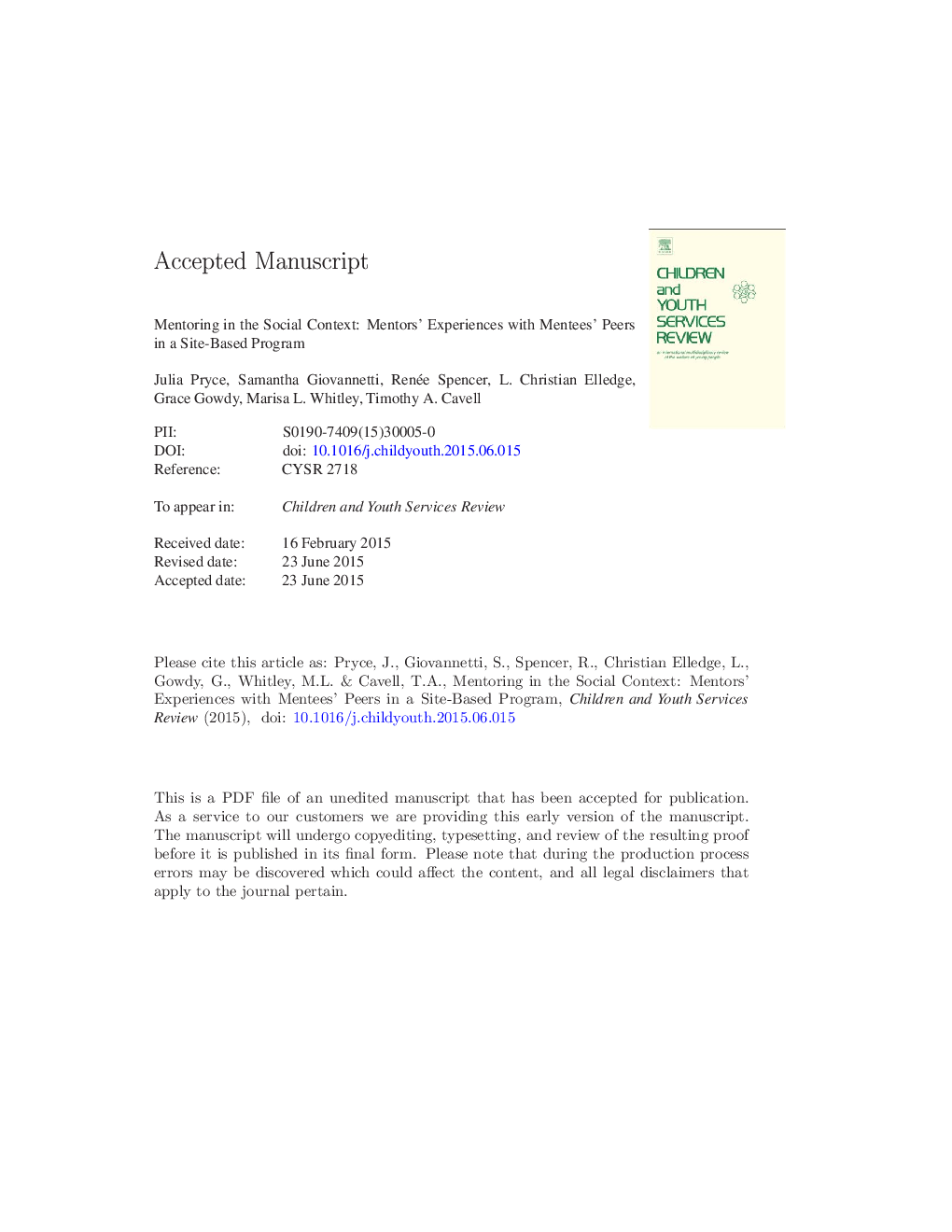| Article ID | Journal | Published Year | Pages | File Type |
|---|---|---|---|---|
| 6834009 | Children and Youth Services Review | 2015 | 36 Pages |
Abstract
The primary mechanism by which mentoring promotes positive outcomes is typically considered to be the one-to-one relationship between mentor and youth. However, many mentoring relationships, particularly those in site-based programs, unfold within and are influenced by the larger contexts in which mentoring takes place. In the present study, we examined 161 first-person accounts written by college students serving as Lunch Buddy mentors in an elementary school-based mentoring program. This examination aims to glean insights into mentors' experiences of and responses to their mentees' peers as they carried out the mentoring relationship in a school cafeteria setting, and the ways that mentors' engagement of mentees' peer networks might have influenced the mentoring process. Our analyses delineate the different approaches taken by mentors to engage mentees' peers, and the challenge of focusing on the mentoring relationship while also managing interactions involving mentees' peers. Findings shed light on how the contexts in which mentoring relationships occur shape the course and function of mentoring, and expand our understanding of the processes through which mentoring relationships can promote positive change for mentees.
Related Topics
Health Sciences
Medicine and Dentistry
Perinatology, Pediatrics and Child Health
Authors
Julia Pryce, Samantha Giovannetti, Renée Spencer, L. Christian Elledge, Grace Gowdy, Marisa L. Whitley, Timothy A. Cavell,
